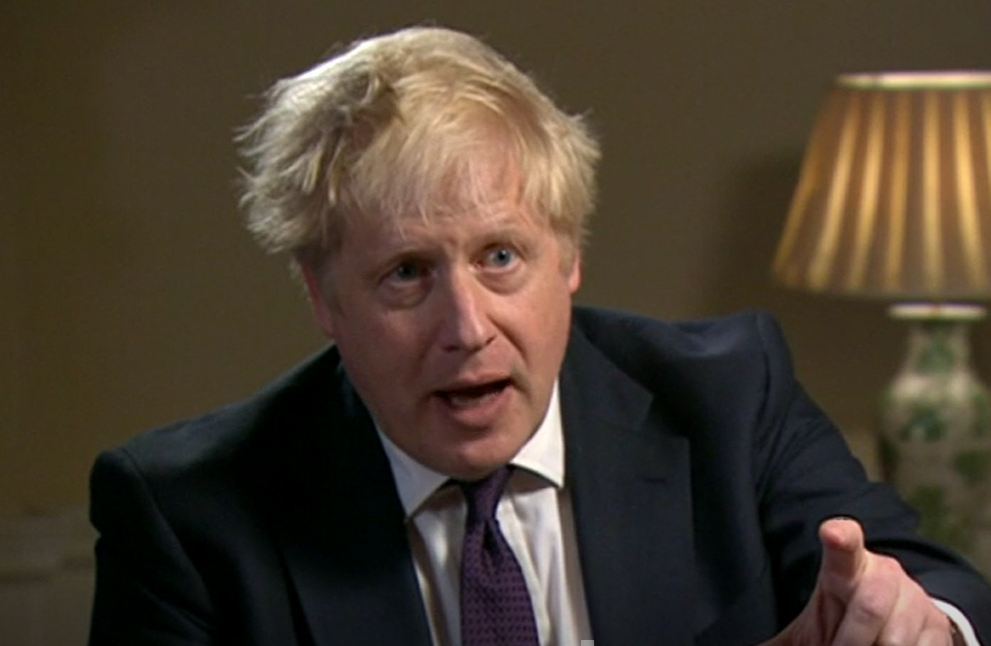The parliamentary report into the government’s response to Covid-19 reveals failure after failure
Editorial: The Commons select committee has dismantled Boris Johnson’s cosy version of events

No doubt Boris Johnson, with all the sense of perspective a sunny break in Marbella can bring to bear on public affairs, will dismiss the parliamentary report on the response to Covid-19 as just so much “Captain Hindsight” stuff. The government’s line, accepted to a surprising degree by much of the public, is that ministers were working hard in difficult conditions to get things right, as the whole world was overwhelmed by a once-in-a-century pandemic. Criticism, then, is levelled only with hindsight.
The Commons select committee has dismantled that cosy version of events. It is a commendably balanced report, weighing “big achievements with some big mistakes”. It is only fair to acknowledge great credit for the successful development and rollout of the vaccine programme, speeded by the interventions of Dominic Cummings and, more arguably, the new flexibility afforded by Brexit.
The more painful fact is to realise how much better off Britain would have been – how many lives would have been saved – had that same urgency and effort been applied to so many other aspects of the crisis. As the MPs point out, the very first stages of the test and trace programme were just as successful as the later drive for a Covid vaccine – an acceptably reliable test was perfected early in the crisis. After that, however, everything went badly wrong, at enormous cost in human suffering and to the public finances.
Likewise, the hesitation over the initial lockdown in March 2020 also needlessly cost lives and “reflected a fatalism about the spread of Covid that should have been robustly challenged at the time”. According to Mr Cummings – a key witness in the proceedings of the committee – it was challenged by him, but plainly it was insufficient to overcome the prime minister’s natural tendency to dither and delay, to borrow a phrase.
At every point in the developing pandemic, the decision to lockdown was invariably reluctantly taken and delayed for too long, while the relaxation of restrictions was usually rushed and premature. What’s more, the persistent failures to develop a viable locally-effective test and trace regime, one that could target the hotspots, meant that the effort in buying time and slowing the spread of Covid during lockdowns was partially wasted, delaying cases rather than preventing them. Without the vaccine, that dismal cycle would have persisted.
All of this was known and widely argued at the time – it is not about being wise after the event. The prime minister and his colleagues were told again and again that their timing was wrong, and they continued to fail. They were chastised about the contracts for cronies and the vast incompetence of test and trace, symbolised by the app that took so long to appear. That the government and the NHS could work quickly and productively with the private sector was proved by the vaccine programme; the nation deserves to know who was responsible for the predictable and predicted failings elsewhere.
Much the same sense of betrayal haunts the provision of social care. It was apparent from very early experience that the coronavirus tended to hit older people harder than younger people, and yet care homes were left to deal with an influx of Covid patients discharged from hospital. The NHS and public health officials had wargamed a pandemic for years, albeit not one identical to the coronavirus, and supplies of protective equipment had been stockpiled, but not kept up to date or periodically reviewed. The increasing evidence of the disproportionate impact on black and Asian people wasn’t acted on decisively, and remains neglected.
As the select committee says, and unlike the much-postponed independent public inquiry, the MPs have reported quickly enough to have a positive effect on the management of the remainder of the crisis – because it is very far from over yet. For that to happen, though, requires ministers to read it and take heed. It is difficult, however, to imagine Mr Johnson getting engrossed in it on his “babymoon”.



Join our commenting forum
Join thought-provoking conversations, follow other Independent readers and see their replies
Comments